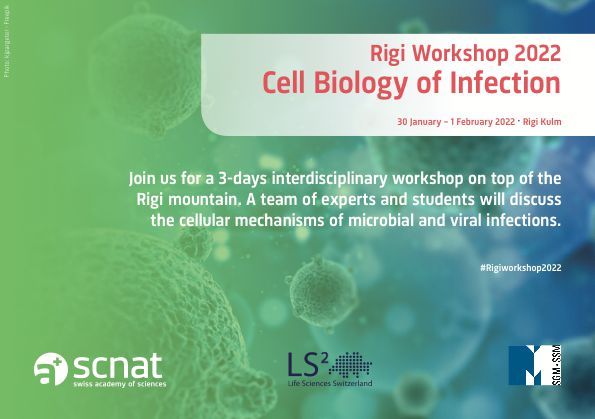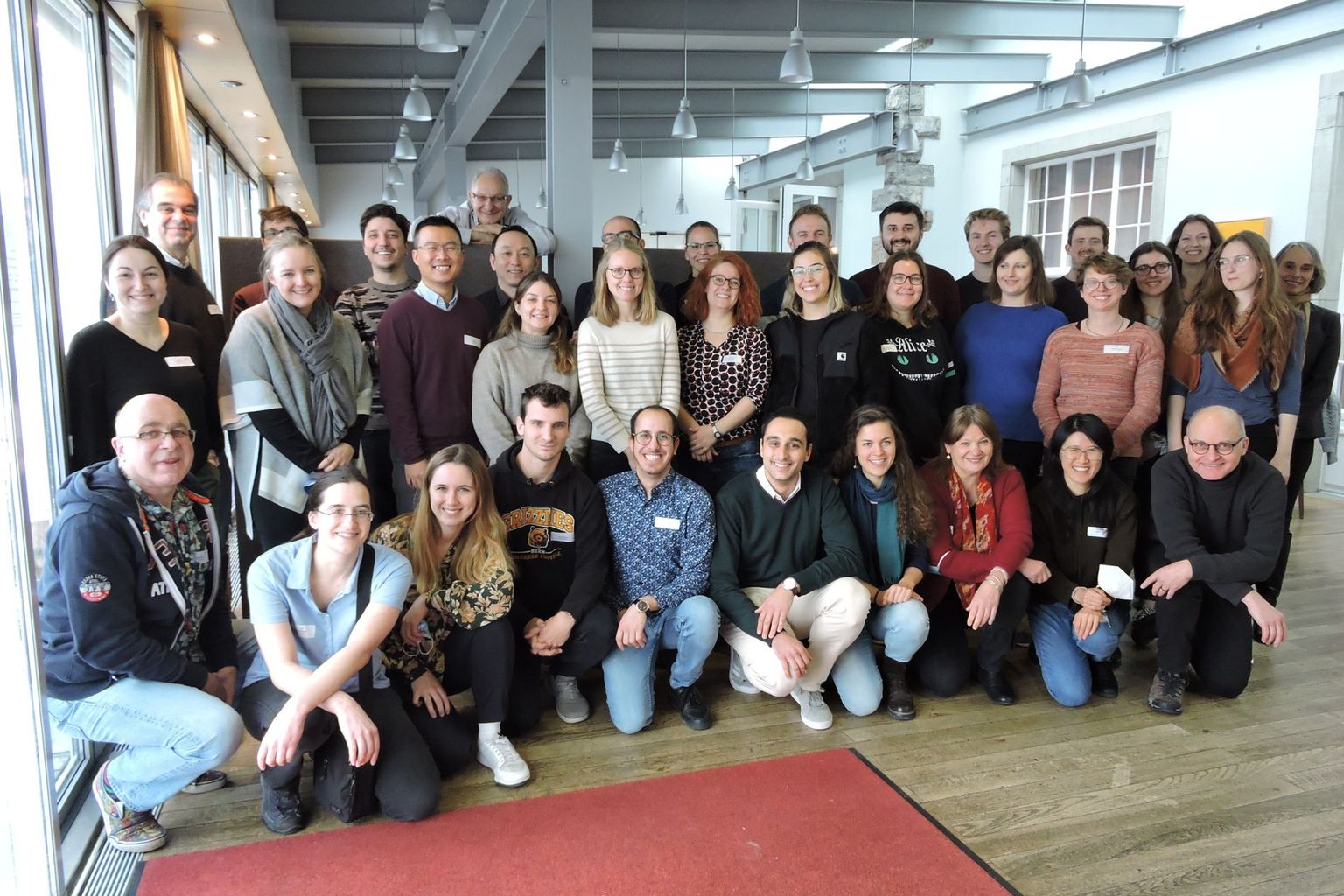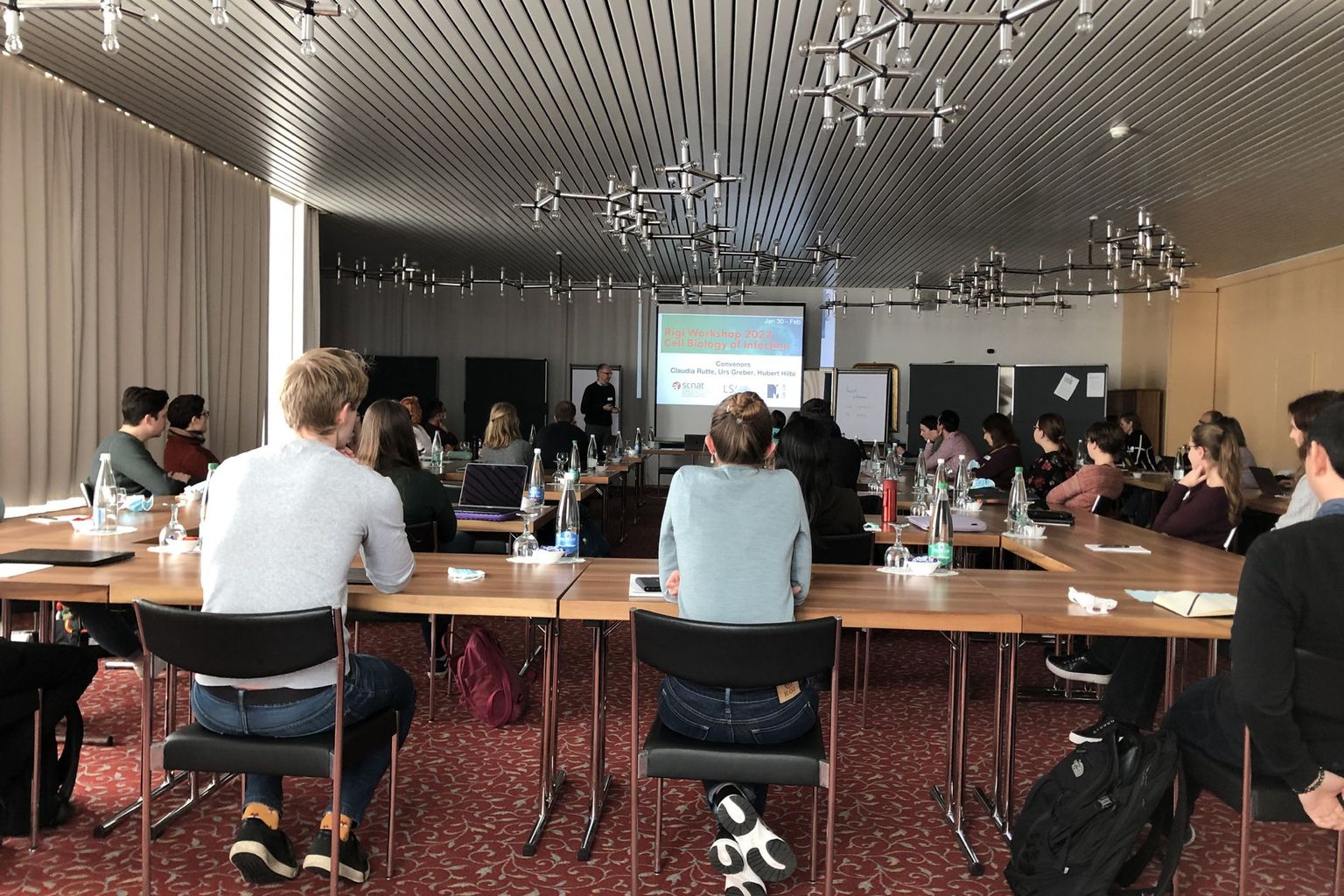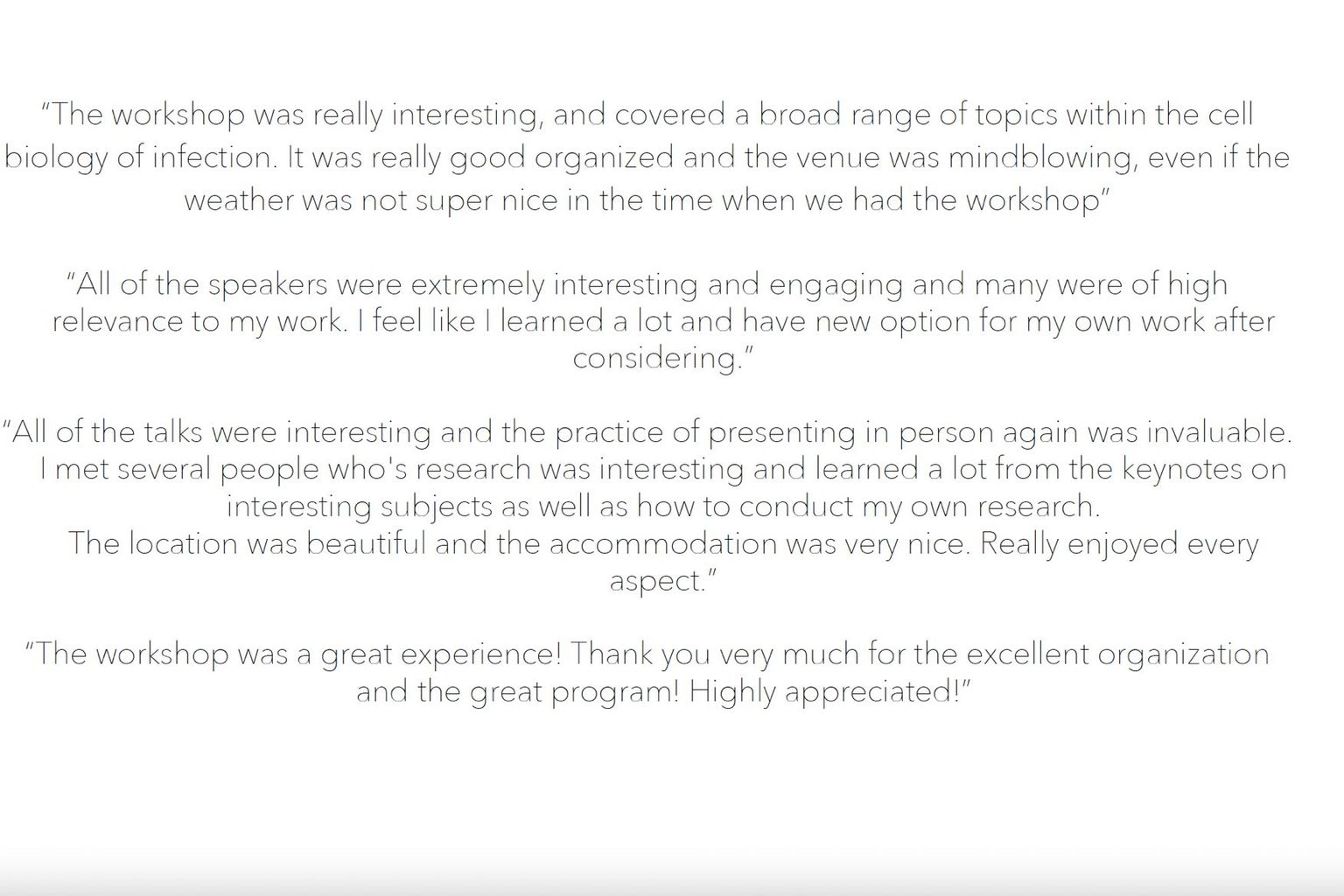Rigi Workshop 2022: Cell Biology of Infection
25 PhD students, Post-docs and master students from six Swiss universities participated in the interdisciplinary workshop on Cell Biology of Infection from January 30th to February 1st 2022 at the Hotel Rigi Kulm.

Infectious diseases are a significant threat to human and animal health, as well as to whole societies. Throughout history, viral, bacterial and parasitic epidemics have plagued humans and livestock. Major killers are viruses causing small pox, influenza or AIDS, bacterial pathogens causing plague, tuberculosis or typhoid fever, and parasitic protozoa causing malaria or leishmaniasis. The Covid-19 pandemic is the most recent example of an infectious disease with world-wide impact. Climate change and widespread travel augment zoonotic transmissions of infectious agents to humans, and bacterial antibiotic resistance emerges with increased use of antibiotics in humans and animals.
While the etiology and manifestation of infectious diseases are vastly different, unifying principles are that viral, bacterial, and parasitic pathogens interact with, infect and destroy eukaryotic cells. The pathogens subvert pivotal cellular pathways by producing toxins, effectors and modulators, and they activate the immune system of the host. These processes unveil fascinating and sometimes entirely new biology. An in-depth molecular understanding of processes underlying pathogenesis not only provides insights into the mechanisms of diseases, but also offers intriguing glimpses into the cell biology of eukaryotic cells. These insights eventually contribute to fighting and curing infections.
The Rigi Workshop comprised 9 keynote lectures delivered by outstanding scientists: Nikola Biller-Andorno (UZH, “Risks and opportunities for society and medicine in the times of pandemics”), Carmen Buchrieser (Institute Pasteur Paris, “Legionella pneumophila”), Michael Way (Francis Crick Institute London, “Vaccinia virus” and “Publishing experiences – the editor’s view”), Melanie Blokesch (EPFL, “Vibrio cholerae”), Silke Stertz (UZH,“Influenza viruses”), Cyril Zipfel (UZH, “Concepts of innate immunity in plants and animals“), Yohei Yamauchi (University of Bristol, “RNA viruses”) and Roland Brosch (Institute Pasteur Paris, “Mycobacterium tuberculosis”). All student participants delivered a short talk and prepared a graphical abstract illustrating their research. In addition, the participants received beforehand some reading material on the topic “Legionella” or “Adenovirus”. During the workshop, this literature then served as the basis for a teamwork to prepare and present a research grant proposal. In the evening, Federico Germani and Nikola Biller-Andorno organized a game on the topic “misinformation”, and there were occasions to meet and discuss with the speakers.
The workshop was organized by Hubert Hilbi (Section Molecular Microbiology of the Swiss Society for Microbiology), Urs Greber (LS2 and Section Virology of the Swiss Society for Microbiology) and Claudia Rutte (Swiss Academies of Sciences).
Past Rigi Workshops
- Rigi Workshop 2024: Exploring Epigenetics
- Rigi Workshop 2023: Infectious diseases as drivers of change
- Rigi Workshop 2022: Cell Biology of Infection
- Rigi Workshop 2020: Ecosystems under pressure - Agriculture, forestry and conservation under global change
- Rigi Workshop 2018: Networks and interactions - from species to communities
- Big answers from small packages: systems and synthetic biology of microbes
- Rigi-Workshop 2015
- Rigi-Workshop 2013
- Rigi-Workshop 2012
- Rigi-Workshop 2011
Contact
Dr. Claudia Rutte
SCNAT
Platform Biology
House of Academies
PO Box
3001 Bern
Switzerland




